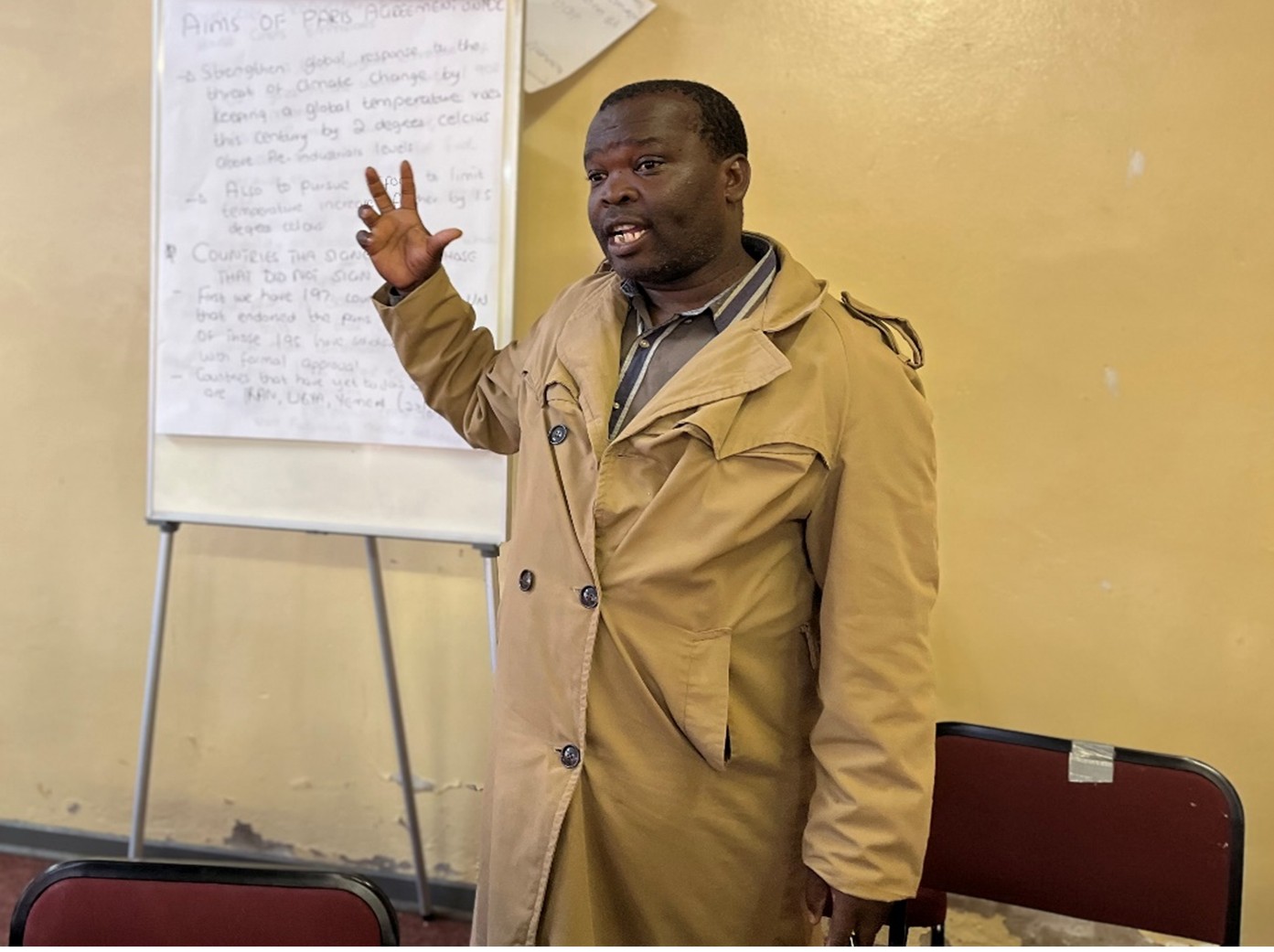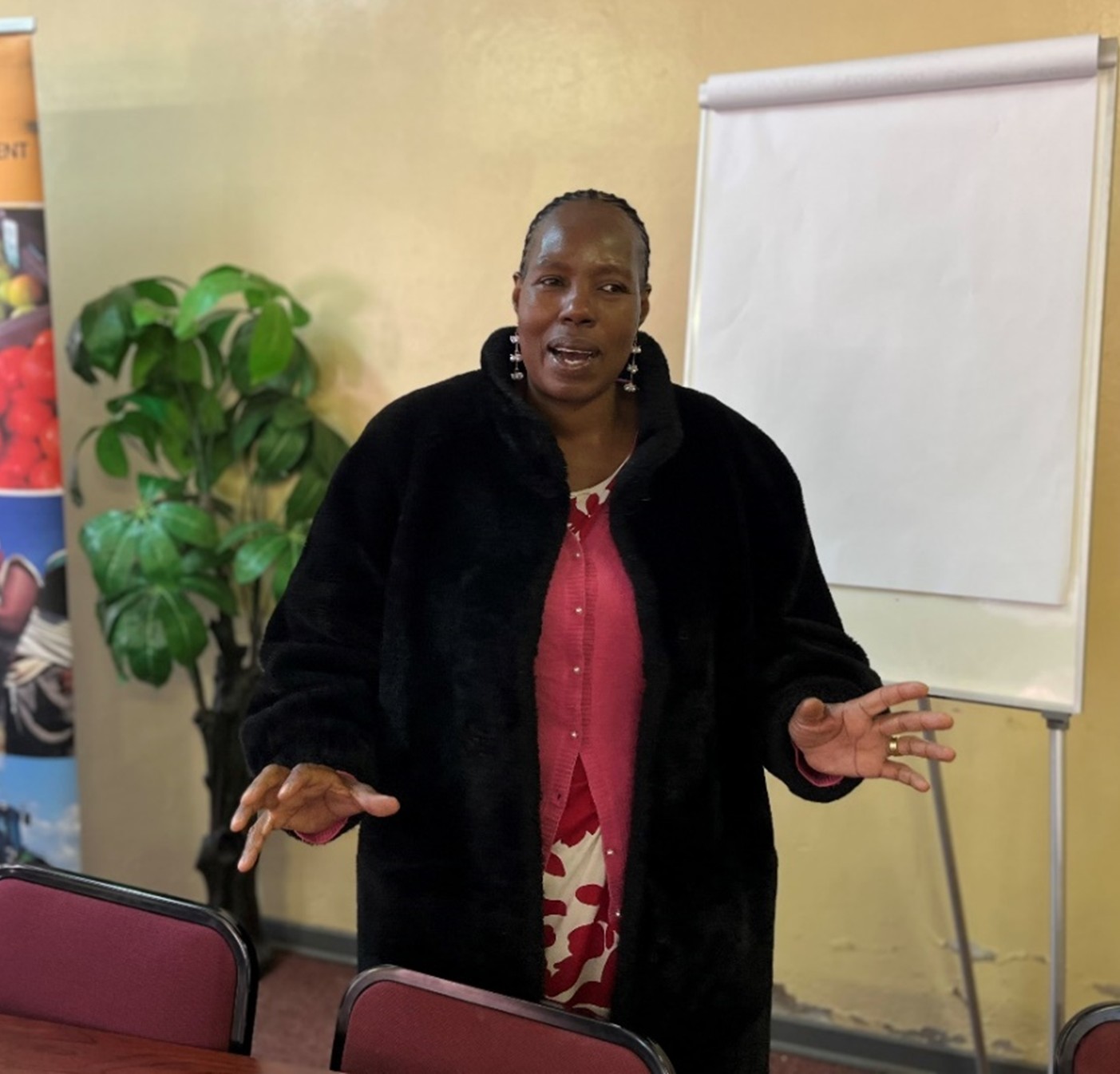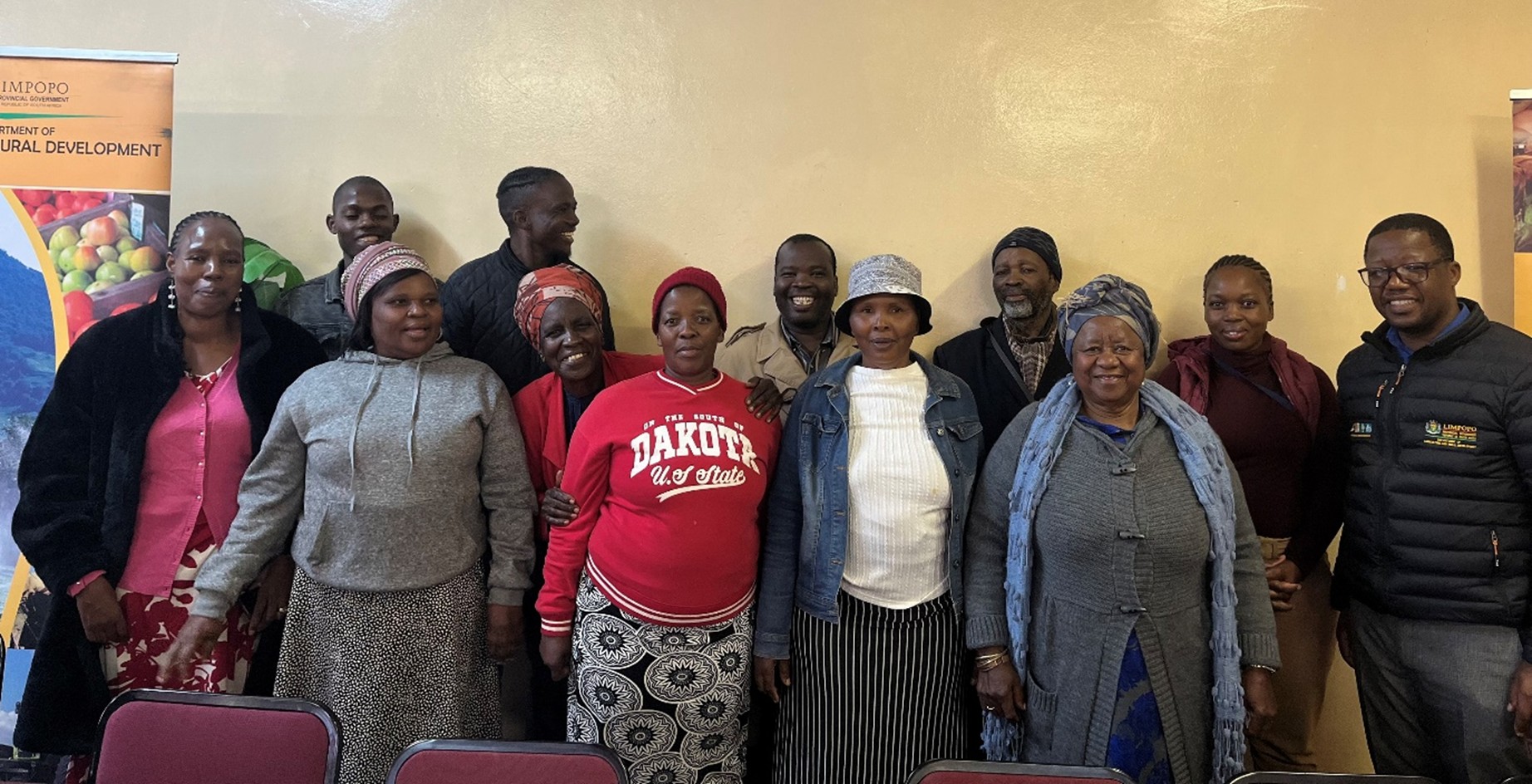By Maphuti Machabaphala

Mr Jackson Kadiaka outlines the NPC agreement.
The Limpopo Department of Agriculture and Rural Development (LDARD) Capricorn South Agro-Ecological Zone in collaboration with The Eastern and Southern African Small-Scale Farmers Forum (ESAFF) hosted a climate-focused forum for farmers from the four districts in Limpopo at the Capricorn District offices hall situated in the Public Works Complex, Lebowakgomo. The intent of the gathering was to equip farmers with the relevant knowledge to adapt to climate change, with more emphasis on climate smart and sustainable farming practices.
The business of the day commenced with Mr Jackson Kadiaka, a representative of ESAFF, highlighting the value in helping farmers understand and apply climate smart agriculture to allow for sustainability and food security, with a key part of the event focusing on “Influence 5” programme aimed towards promoting climate viability for small-scale farmers.
ESAFF, originally established in South Africa and now formally based in Tanzania, brought together policy experts, government officials and farmers to further close the gap between farmers and government departments, with discussions ranging from seed legislation to drought mitigation strategies.
Ms Dora Mashamaite from LDARD, highlighted how climate change has made weather patterns more unpredictable, compounded by droughts, floods and extreme temperatures. She emphasised the importance of planning ahead, while encouraging the farmers to build resilience through having water storage systems in place, minimizing tillage and using natural/indigenous pest and disease control methods. Ms Mashamaite concluded her presentation by highlighting the importance of being prepared for common climate challenges in Limpopo like veld fires, droughts, black frost and floods, saying that failing to plan is planning to fail.
Mr Selekane Phaahladira offered tips to the farmers on boosting yields and protecting crops, by using shade neds, mulching, using disaster-resistant crops and intercropping. In addition, he urged the farmers to stay in contact with their local agricultural office to report disasters and get support from the department.
One of the key focus areas of the gathering was to dissect South Africa’s role in the National Determined Contribution (NDC) agreement, which is aimed at cutting global carbon emissions. Mr Kadiaka broke down the alignment of the NDC with farming practices by regulating emissions and encouraging climate-smart farming. In conclusion of the sitting, a group discussion was held on how to align local efforts with the NDC goals.
The farmers closed of the session by sharing some of the challenges they are faced with, highlighting access to funding, knowledge and exposure as some of their challenges that can be addressed with exposure visits, trainings and crowd funding efforts.

Ms Dora Mashamaite presents on climate-smart agriculture.



